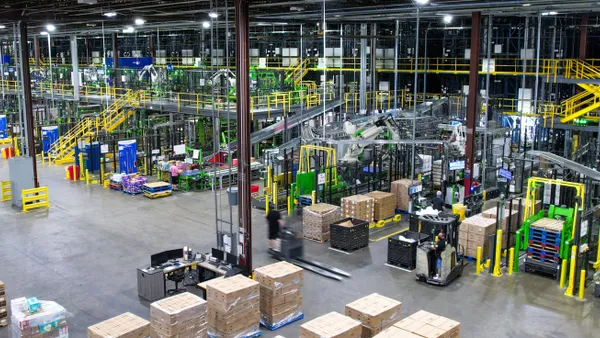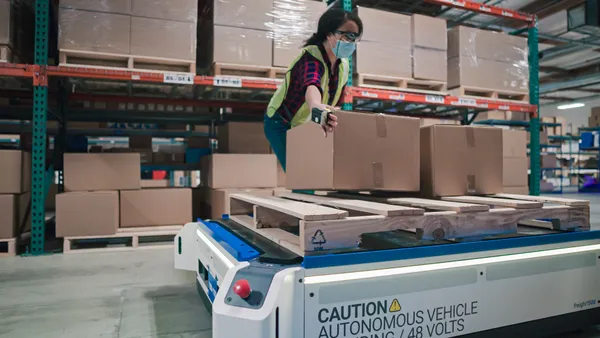Dive Brief:
- New tech promises a world of opportunities for manufacturers, but unstructured data, talent gaps and incompatible business processes must all be overcome to reap the benefits, according to a new study.
- HfS Research and Accenture surveyed 465 director-level-and-above operations professionals to examine how back-office professions were keeping pace with corporate changes focused on adapting to rising consumer expectations, Big Data and digitalization.
- The study reveals a paradox of needs versus the ability to implement change: 42% of executives see technology as an opportunity, but 80% of respondents said 50% to 90% of their data is "unstructured and largely inaccessible," while lack of talent or legacy business processes obstruct the potential for change.
Dive Insight:
Debra Polishook, group chief executive at Accenture Operations, said it best within the press release: "Our research suggests technology alone is not a magic bullet."
Various studies suggest executives are anxious to adopt new technologies, as they look for new ways to drive both top-line and bottom-line growth. Supply chain is no longer about cost-cutting, but driving value, and tools like artificial intelligence, machine learning and the internet of things promise to help make operations more efficient.
Yet, despite the promise, a big problem remains within the industry: it is not clear exactly how best to use or what to do once the emerging tech is implemented.
The Accenture and HfS study provide a concrete example. Although 92% of respondents said data was important to achieving business scores (answering 3 or more on a 5-point scale), 61% consider aggregation, curation or data lakes as their primary data management strategy.
However, much of that data collected is not useful. Part of the problem, more than 50% of respondents said, is that current talent does not have the skills or adaptability to analyze the information. Another is the prevalence of unstructured data:

Still, many companies have begun embracing plug-and-play software and ERP upgrades to start down the path of transformation.
The study found 42% of its respondents had concrete plans to "replace or modernize" their legacy systems, while 25% had already done so. A poll of Supply Chain Dive's operations audience last week saw similar results, as 47% said they had conducted an ERP upgrade less than a year ago.
"To successfully transform their operations, organizations must take a holistic approach that integrates business process and industry expertise, human ingenuity, and intelligent technologies," said Polishook.
As companies embrace IoT strateges, or other data-driven efforts, executives should remember to simultaneously adopt new business processes that will generate value from new technology.













